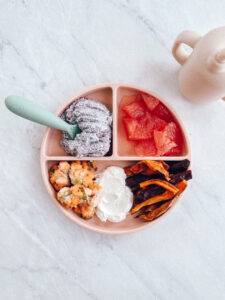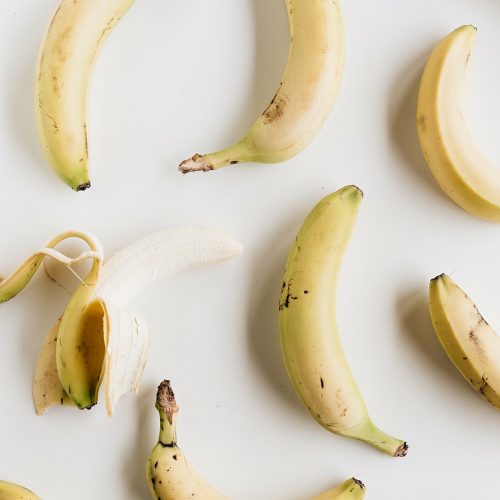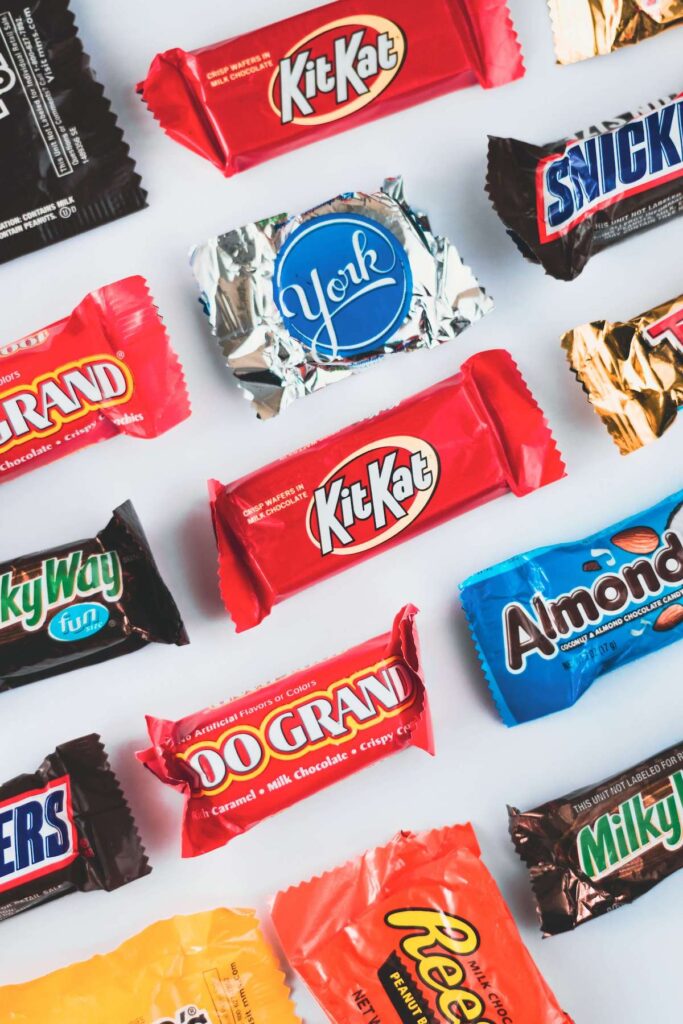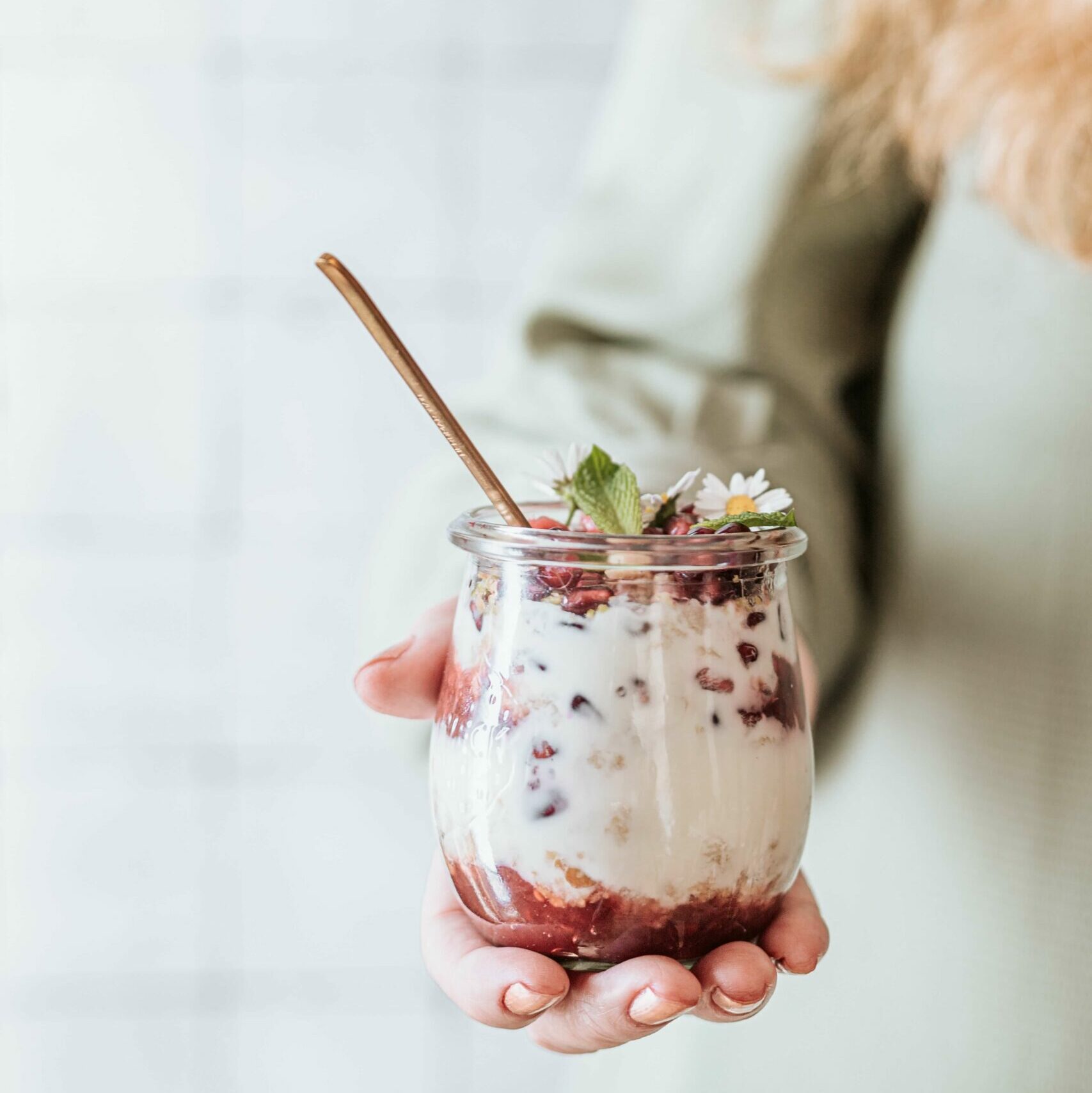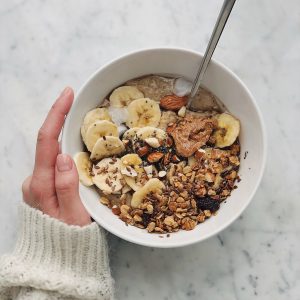Have a toddler who can’t drink dairy milk or just doesn’t like it? These are the best dietitian approved milk alternatives for toddlers!

The Best Milk Alternatives For Toddlers
Around a baby’s first birthday parents are often given the guidance by their pediatrician that transitioning over to dairy milk from either formula or breast milk is okay to start doing. But what happens if you have a young toddler that just doesn’t seem to like dairy milk or isn’t tolerating it well? With so many milk alternatives for toddlers to choose from on the market today, it can be confusing to know which is the best alternative for your little on.
Before the one-year mark, breastmilk or formula should make up the majority of a baby’s nutrition, but after a year, as solid foods are better established, the nutrients found in dairy milk are a suitable alternative to breastmilk or formula.
This can be great for moms who are hoping to start weaning from breastfeeding (if they want to, they definitely don’t have to!) or for parents who had previously been buying formula.

Dairy Recommendations For Toddlers
Starting around one year, two servings of dairy is recommended for toddlers as dairy is an excellent source of calcium, folate, fat, protein, and vitamin D, all of which growing toddlers need.
Two servings of dairy equals roughly 16 oz of milk daily, but it doesn’t need to be consumed in the form of milk and could be in the form of other dairy products like yogurt, kefir, or cheese. Dairy for toddlers should also always be full-fat as they need fat for their growing brains and bodies.
However, just because two servings of dairy is recommended for toddlers, doesn’t mean that it is essential. If your toddler doesn’t tolerate dairy products well, they do not need to consume them and can absolutely meet their protein, fat, folate, calcium, and vitamin D needs from other whole foods.
This is especially true for toddlers who are still nursing, as breastmilk composition changes with age. So unless you WANT to introduce dairy milk to your toddler after one, it isn’t necessary if they are still receiving 2-3 feeds of breastmilk per day.
How Much Milk Is Too Much?
Ideally it is best to try and cap your toddlers dairy consumption between 2-3 servings per day however, as the calcium in dairy milk products does compete with iron for absorption and if consumed in excess could lead to iron deficiency anemia.
Often toddlers will like to fill up on milk, which can also lead to less solid food consumption. So aim to keep your toddlers dairy milk consumption to about 16-24 oz per day and then supplement with other drinks like water, or a veggie/fruit smoothie!
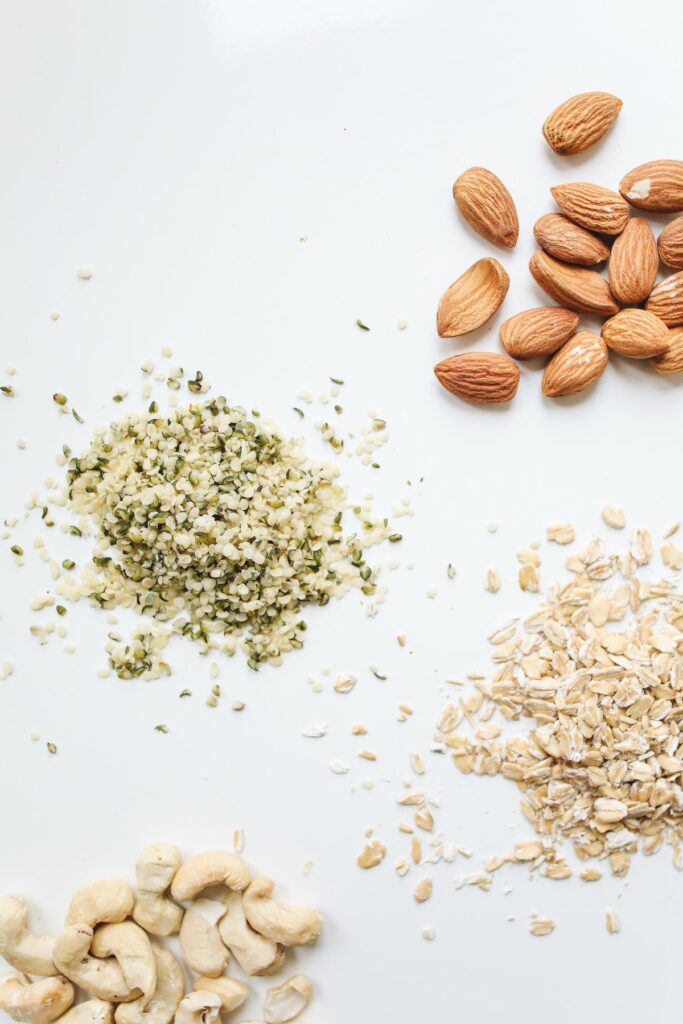
Dairy Milk vs. Milk Alternatives For Toddlers
Often if a toddler can’t drink dairy milk, or it’s not a part of the family food culture, parents will look for milk alternatives to replace dairy milk.
While for us adults, dairy milk alternatives can be nice options to use in smoothies, or our morning coffee, unfortunately milk alternatives for toddlers for the most part just don’t meet the nutritional needs that toddlers need and really aren’t appropriate as a regular source of nutrition until after age two, and ideally closer to age 5.
This is because most milk alternatives are made from a small amount of plant-based foods like grains and nuts and are combined with mostly water, sugar, processed oils, and some stabilizing ingredients to make them appetizing for adults but aren’t ideal nutrients for toddlers.
What is missing from most dairy milk alternatives are the calories, fat, protein, calcium, folate, and vitamin D that toddlers need and are why dairy milk is recommended for toddlers in the first place. At age 1, a toddler will still be getting between 30-50% of their daily nutrients from fluid milk, which is why replacing it with a milk alternative that doesn’t provide much nutrition can be problematic.

Are Milk Alternatives For Toddlers Necessary?
No, and as a dietitian I would argue that they actually aren’t even an appropriate part of a toddlers diet. Especially not as a 1:1 replacement for breastmilk, infant formula, or cows milk.
This is a common cause of confusion for parents who have a child who just doesn’t seem to like dairy milk, can’t tolerate it, or maybe it’s not a part of the family food culture. While dairy milk is recommended for toddlers because it often is an easy transition from breastmilk or formula, and does a good job of helping toddlers meet their calcium, vitamin D, and protein needs, it isn’t absolutely necessary.
If a toddler is getting enough calcium, vitamin D, folate, and protein from other food based sources they do not need dairy milk or any milk alternative. For young toddlers who may be weaning from breastmilk or formula around one year, it may just be beneficial to do a slower wean, to ensure that their solid food consumption and growth stays on track as they wean off milk.
It is also very important in these cases to make sure that your toddler is staying hydrated (ideally with water) as milk often will make up a good amount of a toddlers daily fluid needs.
What To Look For In Milk Alternatives For Toddlers?
While milk alternatives are not appropriate as a 1:1 replacement for breastmilk or cows milk in toddlers and could lead to nutritional deficiencies, if you want to include milk alternatives sparingly as another type of fluid for your toddler the following are a few things to look for:
- Look for a dairy-free milk that has no sugar added
- Look to see if the milk has been fortified with calcium and vitamin D
- Check to see how much protein is in the milk. Dairy milk to comparison has 7g per 8oz serving
- Notice how many processed ingredients are in the dairy-milk alternative like rapeseed oil, carrageenan, and other refined oils and stabilizers.
Common Milk Alternatives For Toddlers Nutrition Chart
The chart below provides a great overview of the common milk alternatives on the market, and how they compare nutritionally.
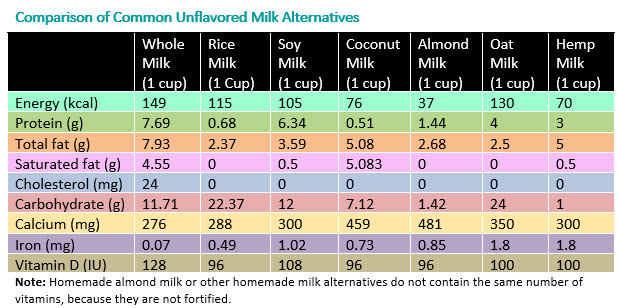
The Best Milk Alternatives For Toddlers
If you want to include some milk alternatives sparingly for your toddler (for example in a smoothie, with cereal, or the occasional beverage), the following are some of my favorite milk alternatives for toddlers that most dietitians and pediatricians can agree on.
Ripple Pea Protein Milk
This is a newer milk alternative made from pea protein that does the closest job of any manufactured milk alternative to meeting the nutritional composition of cows milk. They have a lot of options to choose from, but the best option for a toddler would be their unsweetened original flavor, or their kids milk, which I would wait on until after age two since it does have some added sugar.
Soy Milk
As far as plant-based milk alternatives for toddlers, soy is the closest nutritionally to cows milk, with the exception of lower fat content and certain minerals. So while soy milk shouldn’t be used as a 1:1 replacement for cows milk, it can be given in moderation. When choosing soy milk I always recommend looking for a whole soy milk, that ideally is organic.
Goat or Sheep Milk
If a toddler is having a hard time tolerating cows milk, but doesn’t seem to have an allergy, my first choice would be to try goat or sheep milk, which are often more easily digested. Goat and sheep milk also have very similar nutritional compositions to cows milk, with the exception of vitamin B12, folate, and vitamin D. So if you choose a goat or sheep milk for your toddler make sure that it is full-fat and ideally look for options that have been fortified with folate and vitamin D.




